Genesis Croix de Fer 30 review: a bike for life and all of life's adventures
The newly updated Croix de Fer stays true to its 'do it all' roots but with an eye to the future. It's now more capable than ever.
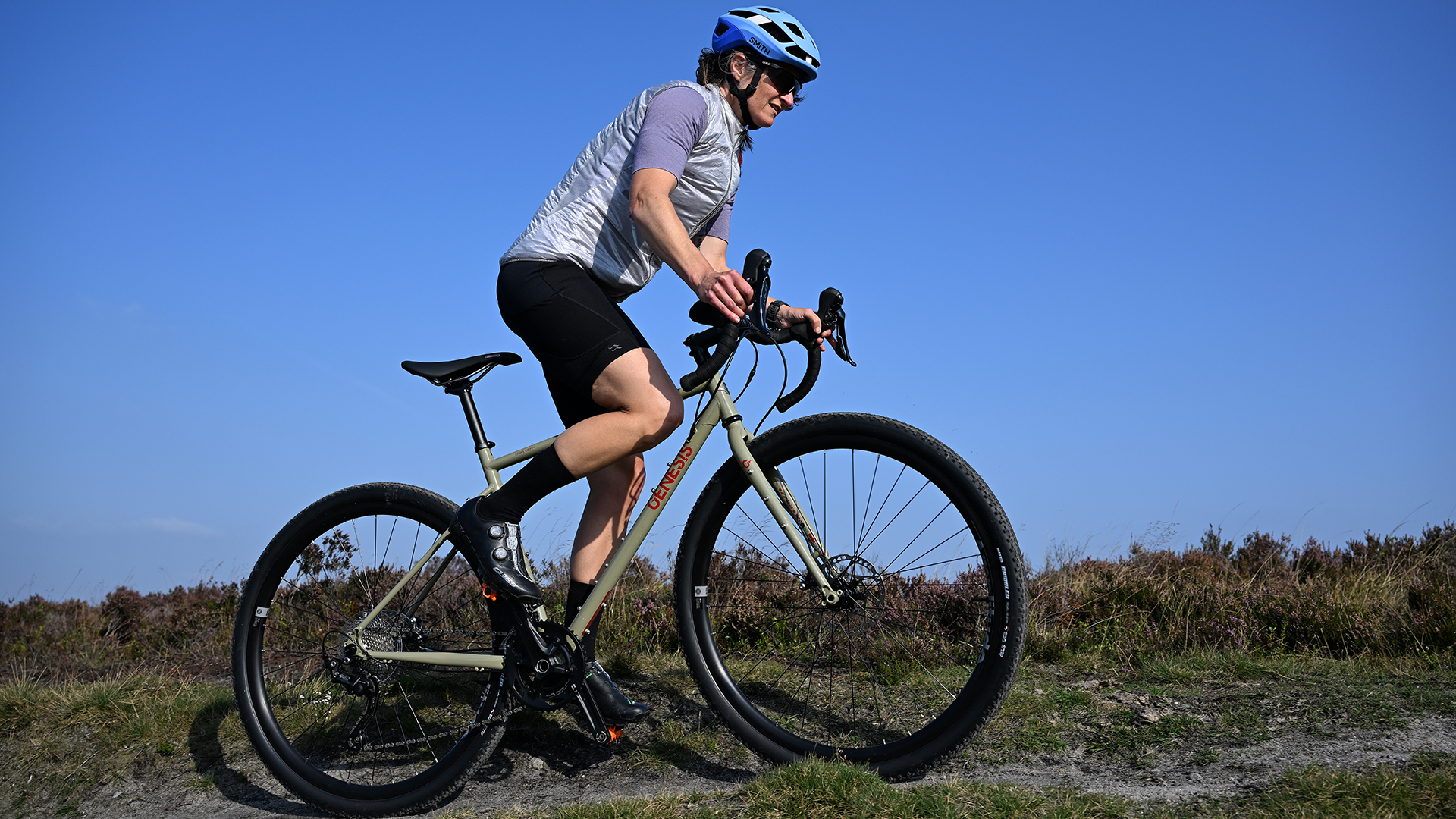
This is a bike that's more about having fun adventures than suffering fear-fuelled adrenaline spikes. It's not race bike fast but it is quick, versatile, dependable and robust. It's a bike that will put a smile on your face every time you ride it whatever the terrain.
-
+
Durability and reliability
-
+
Balanced geometry
-
+
Comfortable ride
-
+
A versatile bike that can handle almost anything
-
-
Weight, but that’s the price you pay for robustness
-
-
Lacks the speed and reactivity of dedicated gravel race bikes
-
-
Smaller frame sizes are relatively long to mitigate toe overlap
You can trust Cycling Weekly.
The ethos of the now iconic Croix de Fer hasn’t really changed since it was first released in 2009, but the bike has just undergone a thorough update this summer.
Popular features, like the steel frame, generous tyre clearance and an array of mounts for bags, bottles and racks are still key components of the bike. But, on the latest version, clearance has been extended to accommodate up to 47mm wide tyres, while cabling is now semi-integrated.
Our test bike was the Croix de Fer 30 which utilises Reynolds 725 steel tubing and a chromoly fork. Lower and higher-priced frames use steel with slightly different properties, so the ride feel and weights differ a little. There’s also a titanium version available as a frameset only.
I was so impressed with the Croix de Fer's build, handling and versatility, that it topped the Best of British category in Cycling Weekly's Gravel Bike of the Year 2024.
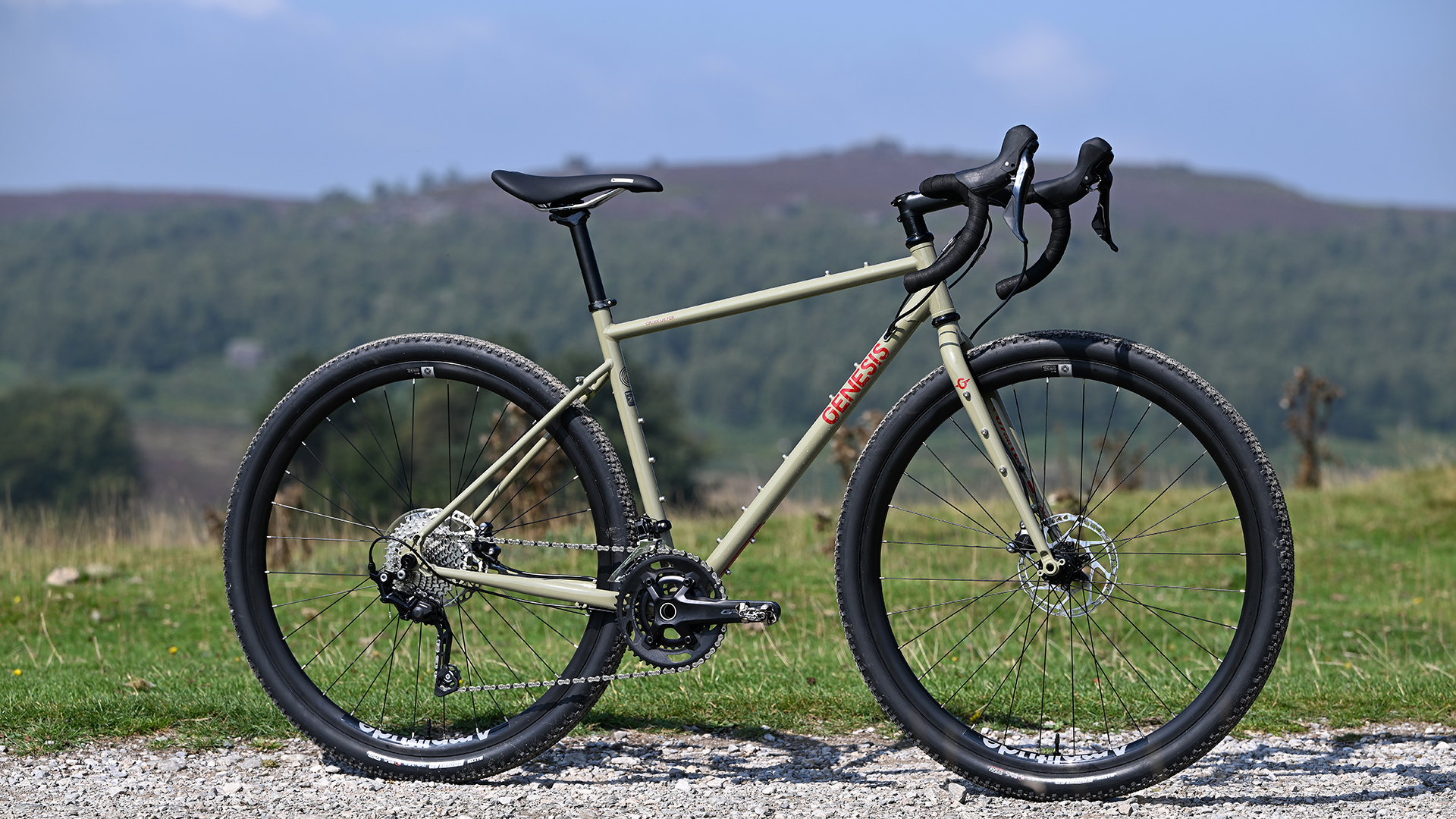
The original Croix de Fer DNA is very evident, but the latest version has been brought bang up-to-date with, among other features, wider tyre clearance.
Geometry on the smaller frame sizes is a little unusual because reach has been extended to avoid toe overlap of the larger front tyre. This makes the smaller frame sizes relatively long, with shorter stems partially compensating for this. Head (71.0o) and seat (74.0o) tube angles are similar to many gravel bikes although less progressive than some of the more technically capable machines. The wheelbase of our small framed bike is a stable 1,046mm but reach is long at 395mm (the same as the large frame). For all-day comfort, stack is relatively high at 566mm. The reach measurements on the medium and larger frames are much more typical, the clearance is sufficient so it doesn’t need to be adjusted.
Construction
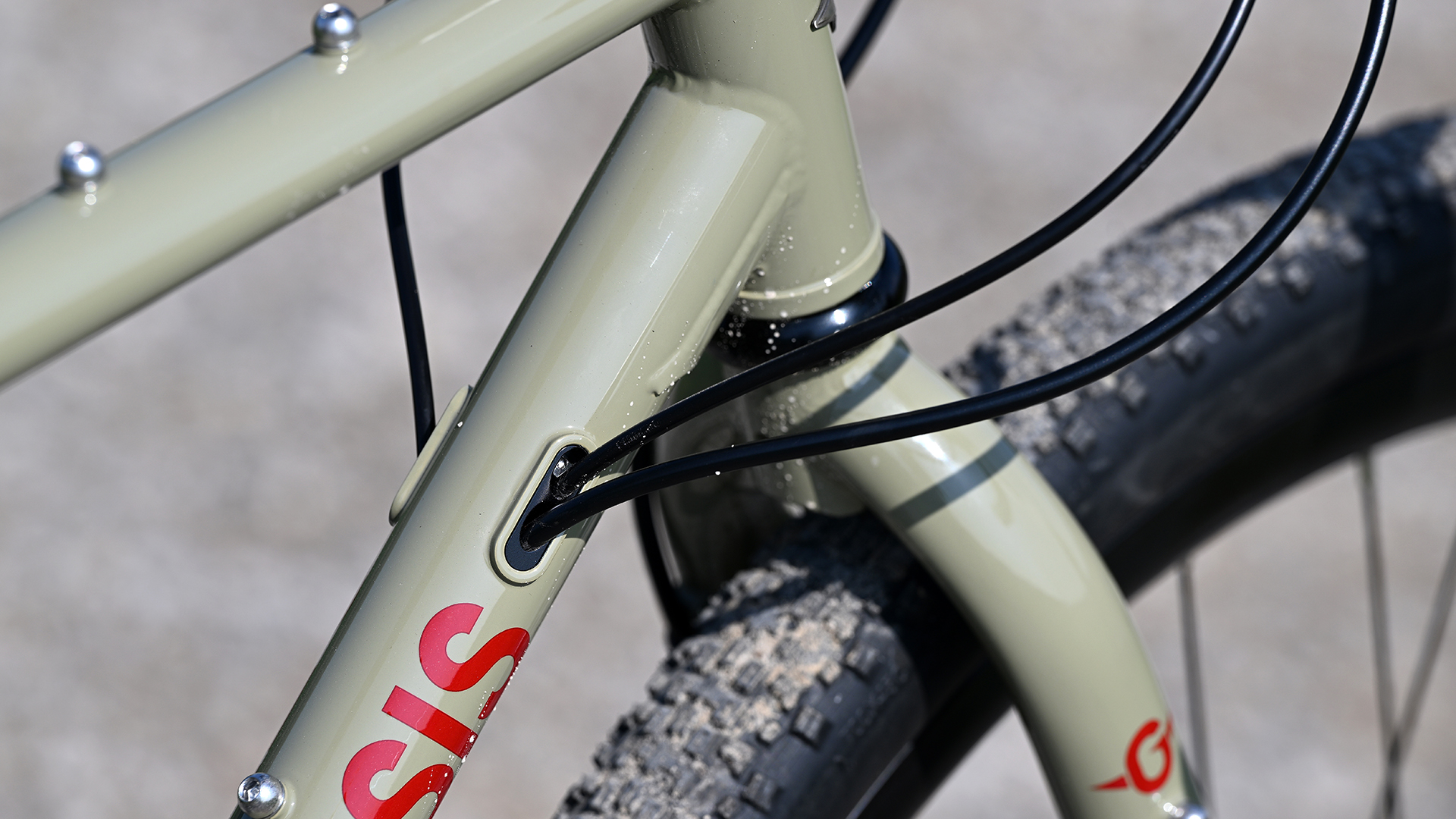
Neat, easily serviced semi-integrated cabling is to be applauded.
I might be showing my age here but the CdF 30 is a beautiful bike to look at; the simplicity of the steel tubing and classic colourway and graphics. Just take a look at the detail down the back of the seat tube.
One of the most striking differences between the CdF and other bikes in Cycling Weekly’s Gravel Bike of the Year group test was the double-chain ring, Shimano GRX manual groupset. Everything else we rode had a single-ring SRAM setup. In part that was by chance, but it’s also true that not all gravel bikes are designed to take a double chainset. The speccing of a double chainring really captures the intent of the CdF, this is a bike that’s designed to ride pretty much any terrain while carrying pretty much any load you can sensibly imagine.
The latest race content, interviews, features, reviews and expert buying guides, direct to your inbox!
Similarly, the rest of the build followed the ethos of ‘reliability and capability’ over ‘light and fast’. Wheels are in-house Amplitude G100 alloy, which are tubeless ready, with Maxxis Rambler 45mm tyres. The rest of the finishing kit was Amplitude branded alloy.
All in, our review bike, in a size small weighed 11.7 kg.
The ride
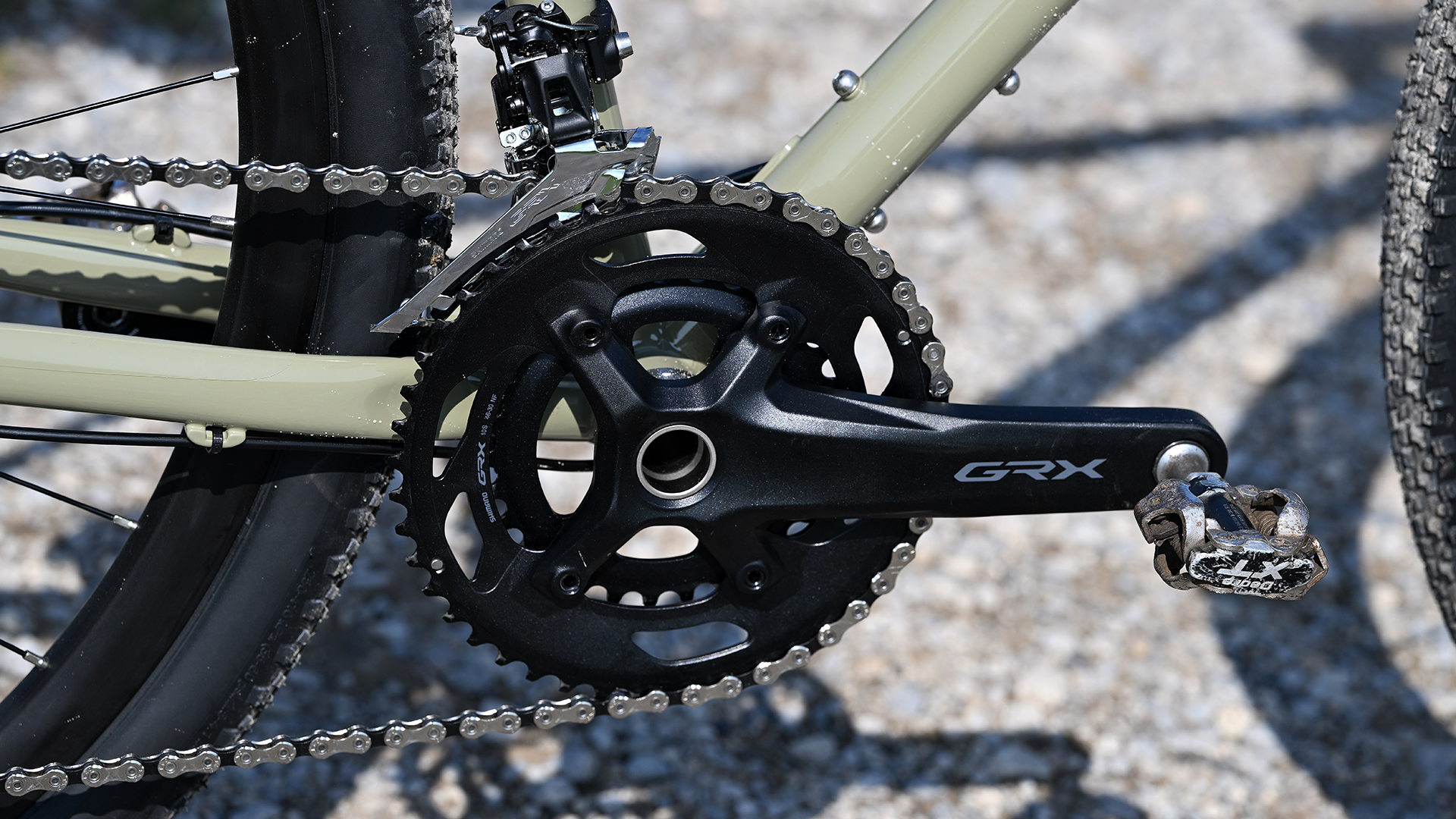
A 2x drivetrain is relatively unusual on a gravel bike, but it makes the Croix de Fer more versatile both on- and off-road.
The steel frame and tyre volume should give you a good indication of what the Croix de Fer is built for. This is a bike that is as much (or more) about utility and dependability as it is about blasting out a two-hour gravel ride.
Instantly, the CdF is a comfortable bike to ride, a combination of its upright position and compliant steel frame. It does everything you want it to do without the vagaries and fickleness of a bike that’s designed too much for one thing or another.
I did find the front end of the small frame too long and wide for my liking even though I measure up right in the mid-point of the recommended sizing. The extended frame reach was just a little too much, reducing down by 20mm gave a much better feel. Similarly 440mm width bars on a bike designed for riders 5’4” – 5’7” is really quite burly even if it makes fitting a bar bag easy. Another sizing issue of the smaller frame was the bottle cage bosses on the seat tube. Their position blocks the seat post if it’s inserted far into the frame, so I needed to use a cut-down post to get my saddle height right. This is worth checking if you ride a size small and want to run a dropper post.
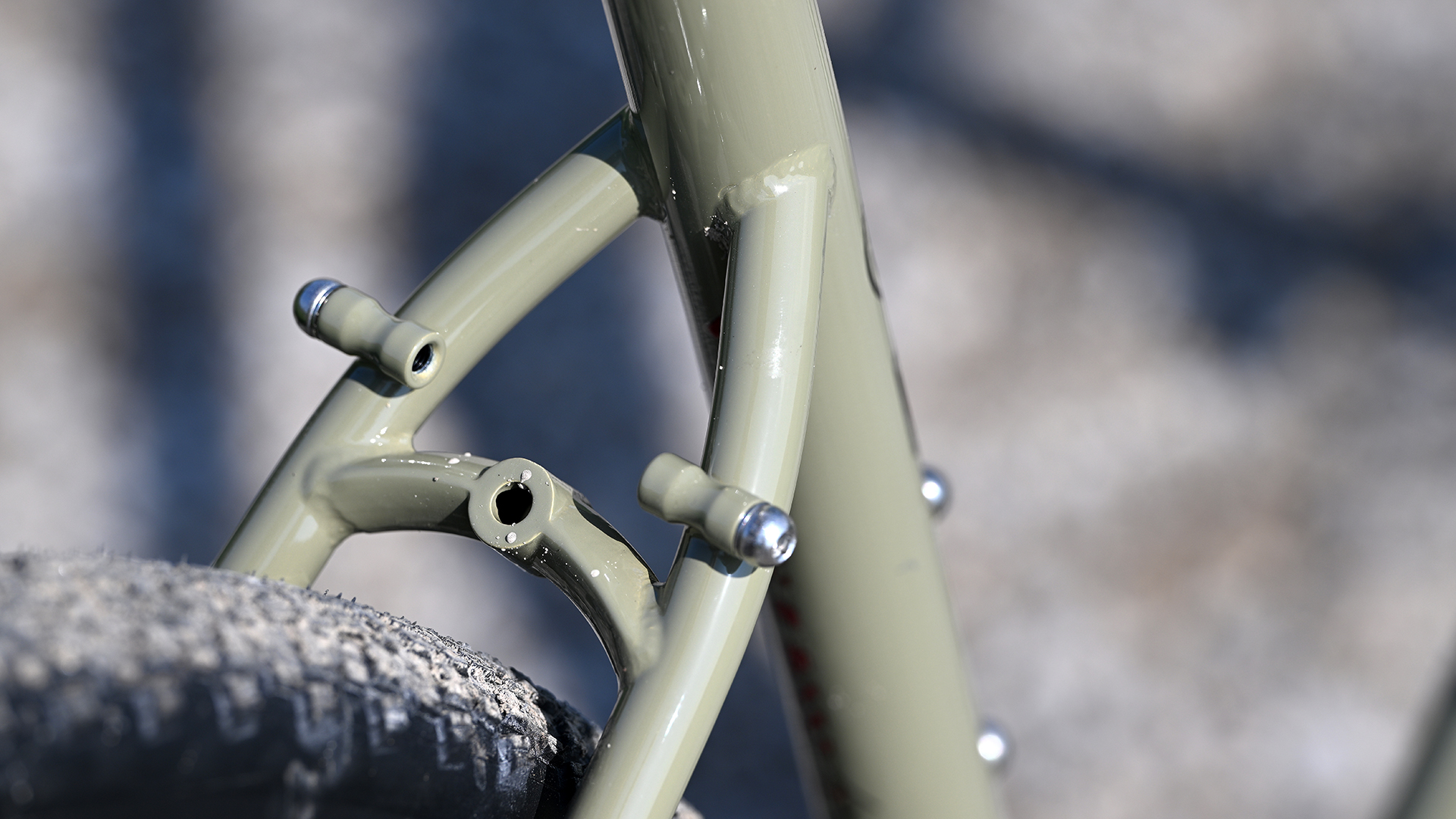
Mounting points for mudguards/fenders, racks and cages abound.
There’s not an instant or huge reward if you try to push the CdF’s pace, think diesel engine rather than a V8 petrol. Handling is sure and steady, and whilst little inputs of effort or twists and turns in the trail are rewarding, they don’t generate a huge burst of adrenalin. That’s not to say it can’t cope with more technical trails, the steel frame, large volume tyres and longer wheelbase allowed it to cope admirably with my many less appropriate choices of trail.
But where the CdF really excels is those long, all day rides that are measured in pace rather than speed. It’s reactive and fun when you need it to be but – crucially – steering is sure and stable, and sitting in the saddle and pedalling isn’t a chore.
This is a bike that I’ve enjoyed riding purposefully on the road on my way to work, then taking the de-stressing scenic route trails home before loading up at the weekend with a family’s worth of picnic and detritus for a long day out. It’s pleasurable and reliable, doing everything I want it to do.
Value and verdict
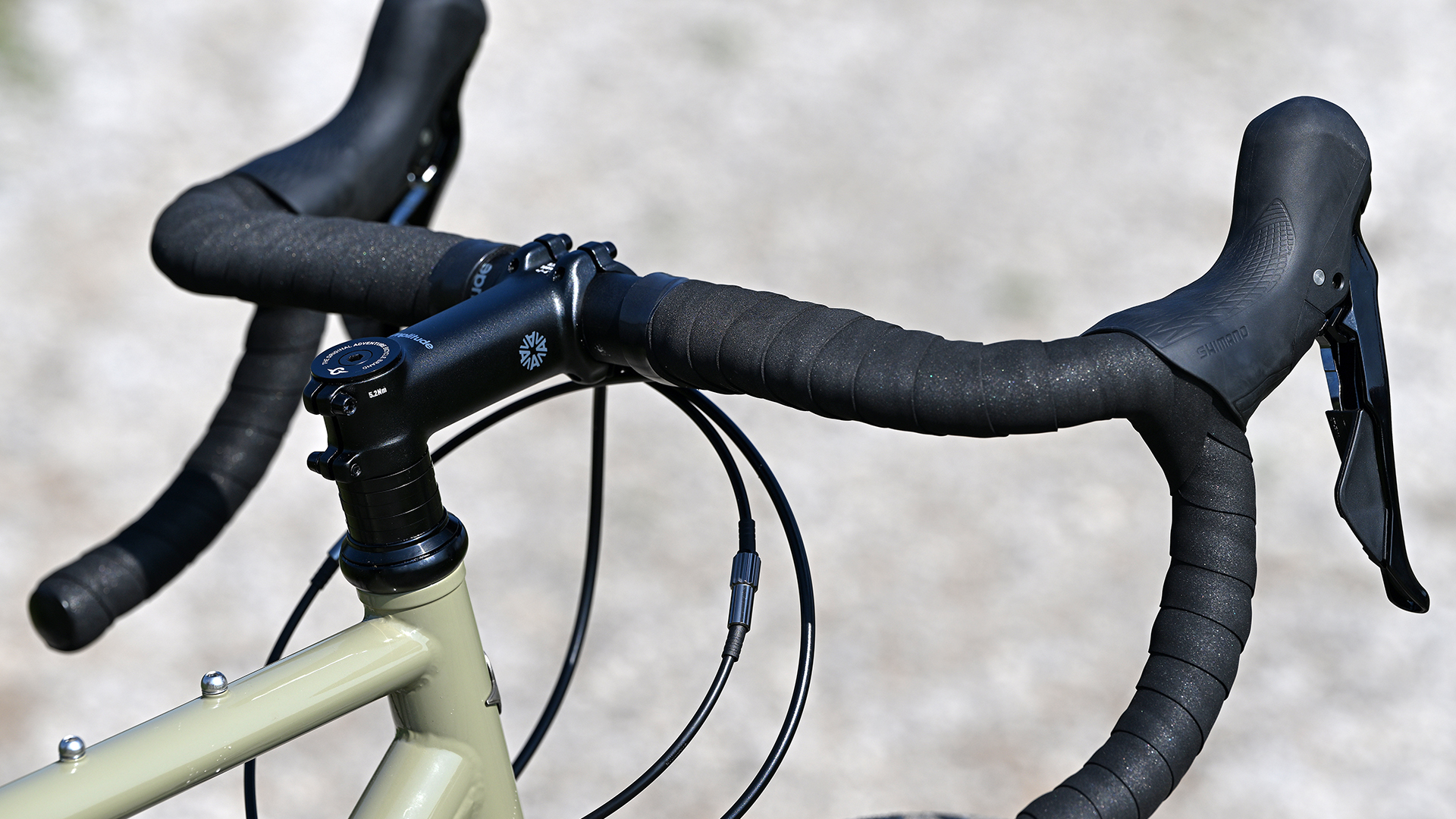
Rachel did have issues with the 44cm bars on a small frame. An unusual choice by Genesis.
Pricing of all the CdF range is welcomely accessible rather than aspiration. The 30 model we tested has an RRP of £2,300 making it an affordable option.
On paper, it’s tempting to categorise the Croix de Fer as a modern-day gravel bike. It shares a similar geometry and features such as tyre clearance, rack mounts and neat but sensible cable routing. But gravel is only a small part of the Croix de Fer story, so such a classification misses its point. This is a bike on which you can do a bit of everything and not worry about it breaking when it gets bashed in the bike shed at work or under the load of your multi-day adventures. This is a bike for life, and all of life’s adventures.
Value and verdict
- Frame & Fork: Reynolds 725 Steel Tubing, Amplitude G100 Chromoly Fork
- Drivetrain: Shimano GRX RX600/RX400, 2 x 10-speed, 46/30T Chainrings, 11-34T Cassette
- Components: Amplitude G100 Finishing Kit, Madison Flux Switch Saddle
- Wheelset: Amplitude G100
- Brakes: Shimano GRX RX400 Hydraulic Discs
- Tyres: Maxxis Rambler 700x45mm Tubeless Ready
- Weight: 11.7kg
Rachel has been writing about and reviewing bike tech for the last 15 years. Cynical by nature, Rachel never really trusts the marketing hype and prefers to give products a mighty good testing before deciding whether they're worth buying or not.
Rachel's first riding love is mountain biking where she's been European and UK 24hr Champion on more than one occasion. She's not just confined to the trails though and regularly rides - and occasionally races - on gravel and road too.